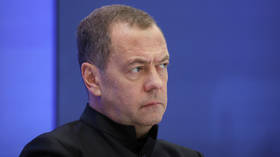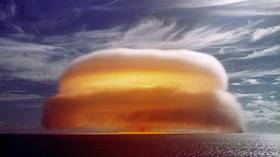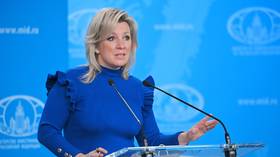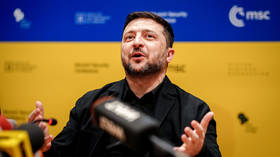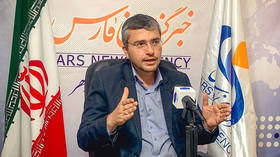‘Libya desperately needs foreign funds to recover’
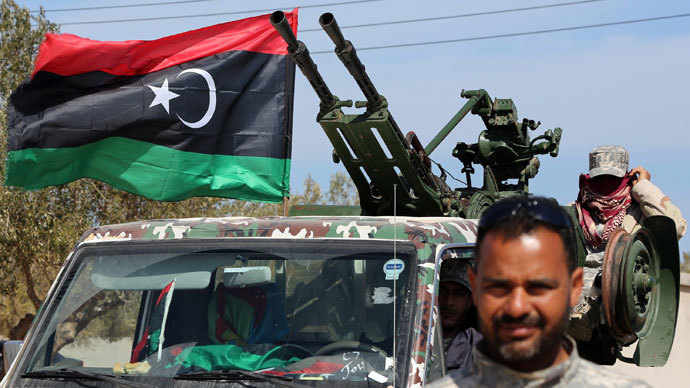
Post-Gaddafi Libya is in desperate need of foreign investment to reconstruct its ruined infrastructure, Professor Yehoudit Ronen, of the political science department of Bar-Ilan University, and an expert on Libya and Middle East region, told RT.
RT:Looking at Libya today, which is your field of expertise, is Libya a failed state?
Yehoudit Ronen: It’s approaching this status. The post-Gaddafi Libya is a chaotic and violent state without political stabilization, without internal security for its people, without security on its borders.
RT:Could it have been different if we rewind just to Gaddafi’s overthrow?
YR: Who knows…Nobody can say yes or no of course. But I think the Western intervention in Libya wasn’t necessary, I think that if Gaddafi was still there, under the circumstances of the Arab Spring, Libya could reach quite different conditions.
RT:Why? What was it about the international intervention that was so wrong? The fact that it happened -- or the fact that it left a vacuum in its place?
YR: I think it was premature to intervene into the Libyan internal conflict. This internal conflict should have been shaped by its own people, without any foreign intervention, particularly without such a military attack that eradicated the Gaddafi regime without having time to prepare alternatives for his regime. The Libyan society is absent of any civil society [component], there is no organized communication system. There is no military now in Libya, there is no police <…> It didn’t bring the results that the Western countries so wished [for]. On the contrary, it brought a lot of damage…
RT:Professor, I was in Libya at the time, and I remember when those first NATO planes bombed. The argument that was being presented is that they felt that the people of Benghazi were under a real threat of being completely annihilated. So, was that a not a good enough argument? And that was the argument at the time, that they were coming to the rescue of the people.
YR: To rescue people is always a sacred mission, no doubt about it. So this logic should have acted also in the Syrian case, which is a real bloodbath, and there is no military intervention by the West. So there were other motives.

RT:What were those motives?
YR: Economic: Libya is a very rich country with oil and
gas. Strategic: in other [words], which refer to the internal
affairs and political circumstances of the Western states.
RT:Who actually rules Libya today?
YR: It’s a good question. I would say that the armed militia. They have the last word, and the ruling institutions are helpless.
RT:And because of this, has Libya become a center of
Jihadist terror?
YR: Today, they are so powerful that Gaddafi fought against them, trying to minimize their power, and he succeeded to [a certain] extent. But during the Arab Spring in Libya they empowered their strengths and became living power. They have a charismatic leadership, they have military skills, they have a lot of weapons. They are absolutely determined to achieve their goal which means to reach power or at least such position, to largely affect the country’s agenda. But Libya is still in the state of searching for its way. So the question is not ‘right now’, but ‘what will be next.’
RT:And that’s exactly my next question. What will be next in terms of the region and of the Jihadists inside Libya and them penetrating the rest of North Africa?
YR: This is really the most crucial point. Because we see the interactions, the inter-effects, the co-operations: military, political, ideological, religious, between the Jihadists and the radical Islamists from Algeria towards Mali, Niger…
RT:What’s happening in Mali today? Could that have happened without the overthrow of Gaddafi and the situation in Libya at the moment?
YR: If France hadn’t intervened militarily in Libya in March 2011 in order to eradicate the Gaddafi regime, perhaps it wouldn’t have had to come to Mali and intervene militarily there since last January.
RT:What has happened to the Libyan oil and gas reserves?
YR: Well, since foreign forces, countries, companies, etc., are so involved in Libya’s oil and gas industry, they acted to minimize the damage and they succeeded to rebuilding oil production and export almost to the same level as during the Gaddafi regime. Yet, this is not the only attention we should give to this particular subject because Libya, which is potentially so rich with oil and gas, for years neglected its industry, it desperately needs foreign capital and know-how now in order to give a real momentum to its industry and have a lot of money in order to recover and rehabilitate its ruined systems.
RT:What happened to the Gaddafi family? I mean we’re waiting for Saif al-Islam to be tried. Do you think that trial is ever going to happen?
YR: Of all this splendid family, there is the mother Sofia and her daughter Ayesha, a lawyer, who escaped to Algeria, Tunisia, to other places in the Maghreb, who survived. Saadi, another son, who escaped, apparently with the help of the Touareg, the loyal Touareg, during the rebellion, to Tunisia, and stayed there. And there is Saif al-Islam, who is still imprisoned by the army militia, who refuse the government’s demand to extradite him to the [????] It’s an unbelievable story. This is an optimal illustration for Libya’s chaos. And all the other sons of Gaddafi, Mu’atassem and others, were killed during the rebellion.

RT:You mentioned earlier the difference between what happened in Libya and the international community not getting involved in Syria. And you did say that those were different types of interests. Do you think there will be a tipping point, a point at which the international community will get involved in Syria, and what will be its motivations?
YR: If the forces like NATO hadn’t intervened in Libya, or if the situation in Libya was developing in a positive way, there would consider to intervene militarily in Syria. The Libyan trauma is clearly delaying foreign intervention in the Syrian case.
RT:Gaddafi voluntarily quit his nuclear program. Do
you think it’s possible that we’ll see this happening anywhere
else in the region?
YR: Let me remind you that Gaddafi did it just ten years ago, it was a different world, the US was powerful, was very active in shaping world politics. It was the new world order. It’s a different time now. I don’t see Iran voluntarily relinquishing its WMD programs.
RT:What needs to happen in Libya? For the chaos and rather a depressing picture that you’ve painted, to be turned around?
YR: I would say that the first phase should be the
significant injection of foreign money and financial capital into
Libya in order to help the government to establish an army, and
police. There is no army and police in Libya nowadays, they
should be established because it is the only chance to combat and
confront the armed militia and to erode their power.
RT:And yet, professor, we started the interview with you saying that the problem in Libya today is because of the foreign intervention, so why would you be promoting further foreign involvement in the country?
YR: I didn’t say that the problems were due to the foreign
military intervention. I said that this intervention apparently
helped to accelerate various negative developments that maybe
would have happened in any way, we don’t know. But I would say
that the West, and not only the West, but also other foreign
countries and companies, which perhaps feel some responsibility,
all because of purely economic interests, it’s okay, they should
stream financial aid to Libya because this is the only way to at
least try to stabilize internal affairs and begin to shape the
country’s new era.
The statements, views and opinions expressed in this column are solely those of the author and do not necessarily represent those of RT.


